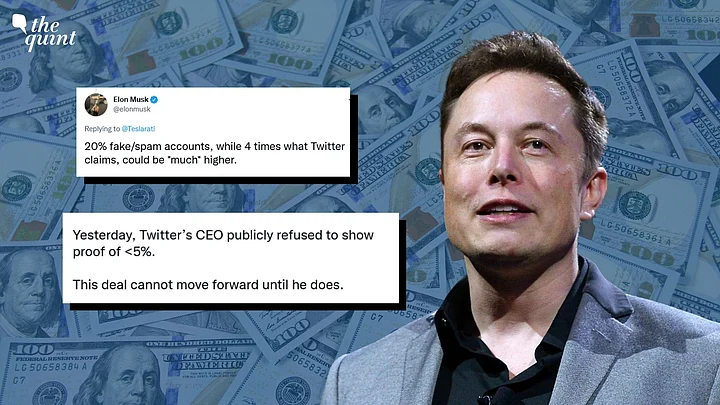Elon Musk’s $44 billion deal with Twitter is in “serious jeopardy” due to an inability to verify Twitter’s claims that only around 5 percent of its accounts were spam or bot accounts, sources told The Washington Post.
Musk’s team is no longer engaging in certain discussions around funding for the $44 billion deal to buy Twitter, the report adds.
Along with Musk, Oracle’s co-founder, Larry Ellison, venture capital firms Sequoia Capital and Andreessen Horowitz, crypto exchange Binance, and Fidelity are others who were financing this deal with him.
The Tesla CEO tweeted in May that the Twitter acquisition “cannot move forward” and was “temporarily on hold” until the claim by Twitter regarding the percentage of bot accounts could be verified as true. These tweets have led to Twitter’s stock prices sinking.
Twitter Shared Data 'Fire Hose'
Twitter, in response to Musk’s demands, shared its “fire hose” of data to allow for the billionaire himself to check the veracity of Twitter’s claims with his own team.
Musk’s legal team has stated that understanding the amount of bot and spam activity on Twitter could influence the ad revenue the company gets, as the company’s estimates regarding how many users ads could be shown would depend on this.
Musk's team hasn't yet been able to verify Twitter’s claims. However, as per the legal agreement detailing Musk buying Twitter, Musk is obligated to buy the company if closing conditions are met.
This report comes mere hours after Twitter’s conference call with media outlets where it explained its technology for blocking bots and detecting spam accounts, and reiterated the 5 percent figure.
Why Is Musk Complicating Things?
There are two possible reasons. Twitter’s share price has fallen since the deal was first discussed, and Musk could be hoping to renegotiate a deal with the company at a lower price than the current $44 billion.
Musk did reportedly say at a Miami tech conference that a viable deal at a lower price wouldn’t be “out of the question,” pointing towards an interest in renegotiation.
The other reason could be Musk trying to find a legal reason to break the contract and justify nullifying the deal.
It’s highly unlikely that even if Twitter’s claim of having only 5 percent of its accounts be bots or spam is true, it would qualify as a reason for Musk to break the deal.
Another way for Musk to walk out of the deal would be to pay a $1 billion termination fee, which could be a possible direction for this deal to go in as well. But this will have to be approved by Twitter first.
Elon Musk bought 9.2 percent of Twitter’s shares in April, and went forward to make an offer to buy the company and have it go private. Twitter accepted the $44 billion deal after negotiations around 10 days later, including the $1 billion termination fee in the deal if things go awry.
(With inputs from the Washington Post, Bloomberg)
(At The Quint, we question everything. Play an active role in shaping our journalism by becoming a member today.)
